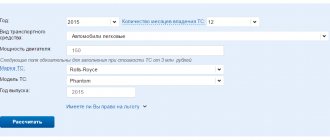The need for separate accounting
The tax base for the sale of excisable goods is determined separately for each type (Articles 187, 194 of the Tax Code of the Russian Federation). In most cases, the excise tax is calculated as the product of the number of goods actually sold and the rate established for this type of product. At the beginning of the calculation, it is necessary to determine the rate of such goods in accordance with Art. 193 of the Tax Code of the Russian Federation, then calculate the volume of products in kind in the units of measurement specified specifically for this item.
For different rates, it is necessary to organize separate accounting of tax bases for excisable goods. If this is not done, then the tax should be calculated from a single tax base in aggregate for all excisable transactions. In this case, the resulting volume will have to be multiplied at the maximum rate of all established for each type of product (Article 190, paragraph 7 of Article 194 of the Tax Code of the Russian Federation).
Example
JSC "April" produces two types of alcoholic drinks - with an alcohol content of up to 9% and more than 9%. For each alcohol product, when calculating the excise duty for 1 liter of anhydrous ethyl alcohol contained, different types of rates must be applied:
- 418 rub. — for drinks up to 9%;
- 523 rub. - for drinks with a strength of more than 9%.
If the LLC does not keep separate records of goods at different excise rates, then the tax base will be calculated at the highest rate of 523 rubles. per 1 liter of anhydrous alcohol contained for the entire volume of drinks sold.
When calculating the tax base for excise taxes, 3 types of rates are used:
- solid - in a fixed amount per unit of measurement of products sold (the tax base is determined as the volume of goods sold in physical terms);
- ad valorem – set as a percentage of sales volume (base – cost of goods sold);
- combined - combining in the formula calculations at a fixed and ad valorem rate (the tax base is the volume of goods sold in physical terms for calculating excise duty at a fixed rate and the estimated cost of goods sold, calculated from the maximum retail prices).
We provide calculations and numerical examples of calculating excise duty and tax bases for each type of rate.
Procedure for calculation and payment of excise taxes
Calculation order. 1) The amount of excise tax on excisable goods with fixed rates is the product of the corresponding rate and the tax base. 2) The amount of excise tax on excisable goods with ad valorem rates is the percentage of the tax base corresponding to the tax rate. 3) The amount of tax on excisable goods with combined rates is the amount resulting from the addition of the excise tax amounts calculated according to the 1st and 2nd options. The total amount of excise tax is the sum resulting from the addition of excise tax amounts for each type of excisable goods, taxed at different rates. The amount of excise tax is calculated based on the results of each tax period (month) in relation to all transactions, the date of implementation of which relates to this tax period, and taking into account all changes that increase or decrease the tax base. If the taxpayer does not keep separate records, then the amount of excise tax is determined based on the maximum rate applied by him, from a single tax base for all transactions subject to excise tax.
A taxpayer who carries out transactions recognized as an object of taxation must present the appropriate amount of excise tax for payment to the buyer of excisable goods. This amount should be highlighted as a separate line in payment documents (registers, checks, primary accounting documents, invoices). Exception: when excisable goods are sold outside the Russian Federation, as well as in the case of the sale of petroleum products. If there is a sale of excisable goods that is not subject to taxation, then settlement documents are issued without allocating the corresponding excise tax amounts and a “No Excise Tax” stamp is placed. And in the case of petroleum products, the excise tax amount is not allocated in these settlement documents and invoices.
Amounts of excise tax calculated by the taxpayer upon the sale of excisable goods and presented to the buyer are attributed to the taxpayer as expenses accepted for deduction when calculating income tax.
Tax legislation has granted the taxpayer the right to reduce in certain cases the amount of excise tax by tax deductions established by law. 1. The amounts of excise tax presented by sellers and paid by the taxpayer when purchasing excisable goods or paid by the taxpayer when importing excisable goods into the customs territory of the Russian Federation, released for free circulation, and subsequently used as raw materials for the production of excisable goods, are subject to deductions. 2. Excise tax amounts paid on the territory of the Russian Federation on ethyl alcohol produced from food raw materials, used for the production of wine materials, subsequently used for the production of alcoholic beverages, are subject to deductions. 3. Excise tax amounts paid by the taxpayer are subject to deductions in the event that the buyer returns excisable goods or refuses them. All tax deductions are made solely on the basis of settlement documents and invoices that taxpayers receive when purchasing excisable goods, and when importing goods from abroad - on the basis of a customs declaration. When using excisable goods for which excise duty has already been paid in the Russian Federation as toll raw materials, tax deductions must be made when the taxpayer provides payment documents confirming the fact that the owners of the raw materials have paid the tax or the fact that the cost of the raw materials has been paid at a price that includes the excise tax.
THE AMOUNT OF EXCISE TAX TO BE PAID TO THE BUDGET ON EXCISABLE GOODS IS DETERMINED BY THE TAXPAYER HIMSELF AT THE RESULTS OF EACH CALENDAR MONTH. AMOUNT PAYABLE = AMOUNT OF EXCISE DUTY – TAX DEDUCTIONS.
A refund of the excise tax is possible in cases where the amount of tax deductions in any tax period exceeds the amount of tax payable to the budget. In this case, the taxpayer does not have to pay excise tax in this tax period. The excess amount must be: 1) offset against current payments to the same budget or against future payments in the next tax period for the same tax 2) returned to the taxpayer
PAYMENT DEADLINES!!!! Excise tax on excisable goods is paid at the place of production of these goods. Payment of excise duty when taxpayers sell excisable goods produced by them is made based on their actual sales for the expired tax period in equal shares no later than the 25th day of the month following the reporting month, and no later than the 15th day of the second month following the reporting month. The tax return by such taxpayers is submitted to the tax authorities at their location no later than the 25th day of the month following the expired tax period. Payment of excise duty on straight-run gasoline and denatured ethyl alcohol by taxpayers who have the appropriate certificate is made no later than the 25th day of the third month following the expired tax period. Tax returns by such taxpayers are submitted no later than the 25th day of the third month following the reporting month.
Tax base for the sale of excisable goods at a fixed rate
Excise duty (A), calculated at a fixed rate, is determined by the formula:
A = Tax base x Tax rate in rubles per 1 unit of measurement of the volume of goods.
Example
produces alcoholic cocktails with a volume fraction of ethyl alcohol of 10%. In March 2021, only 2,120 cans of 0.5 liter drinks were sold.
The tax rate used to calculate the tax is RUB 523. for 1 l. anhydrous ethyl alcohol.
The cost of input excise tax on ethyl alcohol purchased from suppliers for production is 7,200 rubles.
1. Calculate the quantity of products sold in liters:
2120 cans x 0.5 l = 1060 liters
2. Let’s determine the tax base by converting to anhydrous alcohol:
1060 l. x 10% = 106 l.
3. Let’s calculate the amount of excise tax on sold excisable products:
106 l x 523 rub. = 55438 rub. 00 kop.
4. Let’s calculate the excise tax payable on products sold in March:
To do this, we will reduce the amount of excise tax by the amount of the tax deduction:
55438 - 7200 = 48,238 rubles.
Tax base for the sale of excisable goods at a combined rate
Excise tax on goods with an established combined rate is determined by the formula:
A = Volume of goods sold in established units. measurements x Fixed tax rate for 1 unit. measurements + Estimated cost of goods x Rate in %
Combined rates are prescribed in the Tax Code for cigarettes and cigarettes. They are also used for petroleum raw materials, but with the use of special coefficients - the calculation varies depending on the sales region.
The maximum retail price is required to determine the estimated value. For each name of excisable product it is established separately. It is the product of the maximum possible retail selling price and the volume of products sold.
Let's consider an example of calculating the tax base for cigarettes at a combined rate, taking into account Art. 187.1 Tax Code of the Russian Federation.
Determination of the tax base when selling or receiving excisable goods
The tax base must be determined separately for each type of excisable goods; in addition, it must be determined depending on the tax rates established for the relevant goods. Tax rates are established by type of excisable goods. They come in 3 types: fixed (a certain amount in rubles), ad valorem (as a percentage) and combined (fixed + ad valorem rates). For excisable goods for which fixed rates are established, the tax base is calculated as the volume of goods sold or transferred in physical terms (10 thousand tons of oil) For excisable goods for which interest rates are established, the tax base is calculated as the cost of goods sold or transferred based on selling prices excluding excise tax and VAT. The cost of these goods is calculated based on the average selling prices that were in effect in the previous month, and in their absence, based on market prices. The tax base for excisable goods is determined in the same manner, in respect of which interest rates apply when they are sold free of charge, when bartering, when transferring excisable goods as payment for labor.
THE TAX BASE IS DETERMINED SEPARATELY FOR OPERATIONS SUBJECT TO EXCISE AT DIFFERENT RATES IF THE TAXPAYER KEEPS SEPARATE ACCOUNTS FOR THESE OPERATIONS. IF SUCH ACCOUNTING IS NOT KEPT, THEN A SINGLE TAX BASE IS DETERMINED FOR ALL OPERATIONS RELATED TO EXCISABLE GOODS.
DETERMINATION OF THE TAX BASE WHEN IMPORTING EXCISABLE GOODS INTO THE CUSTOMS TERRITORY OF THE RF The tax base for excisable goods taxed at fixed rates is determined as the volume of imported goods in physical terms. For excisable goods for which interest rates are established, the tax base is the sum of the customs value + customs duty payable. And for excisable goods for which combined rates are established, the tax base is determined as the volume of imported excisable goods in physical terms for calculating excise tax when applying a fixed rate and as the estimated value of imported excisable goods, calculated on the basis of maximum retail prices, for calculating excise tax when applying a percentage rates. The import tax base is determined separately for each batch of goods.
The tax period for excise taxes is a calendar month.
Excise taxes have not provided any benefits since their introduction. Tax rates in percentage or in rubles per unit of measurement are established by type of excisable goods. To determine the time of occurrence of a tax liability, it is necessary to establish the date of sale, transfer or receipt of excisable goods. In general, the date of sale (transfer) of excisable goods is the day of shipment of these goods.





